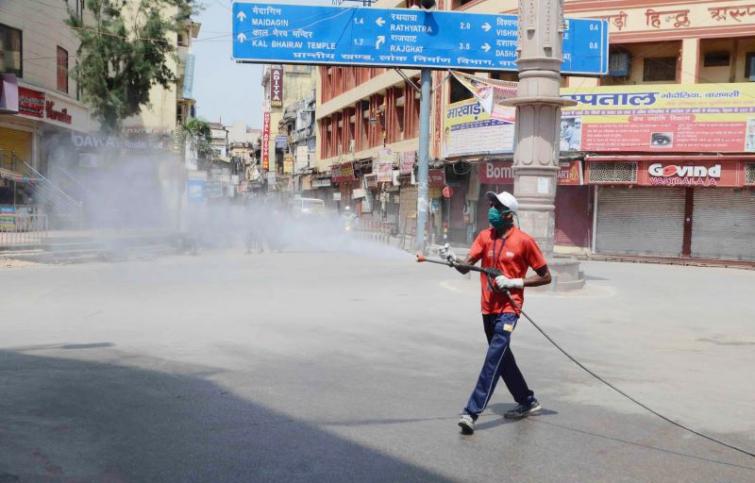
As Covid danger looms, expert cautions against unsustainable lockdowns
Kolkata/UNI: The stage of community transmission, when the source of infection for a large number of Covid-19 patients cannot be traced to a confirmed case, has already set in the country and it is estimated that a significant number of India’s population could be infected, an expert said today.
'Adopting a strategy of “Suppression" involving complete lockdowns for a long spell is not going to work in India and promoting community participation is the key to fight the disease,' Epidemiologist and Visiting Professor at the Kolkata based West Bengal University of Health Sciences, School of Public Health Dr Naresh Purohit told UNl here.
His suggestion comes at a time when governments across nations are opting for extended and extensive lockdown.
.jpg)
'Suppression would mean hurting each other, exploitation, giving power to wrong kinds of people. Community participation seems to be the response to a public health emergency. And community participation and suppression do not go together. This is going to be a long haul. One has to be sensible about it,' the physician cautioned.
The National Integrated Disease Surveillance Programme Advisor expressed concern and apprehension that the "unprecedented policy" of mass quarantine to "flatten the curve" shall prolong the corona virus pandemic.
.jpg)
'The virus could be "exterminated" within weeks if people are allowed to lead normal lives and the vulnerable sheltered until the virus passes,' he felt.
'But, what happens is if you flatten the curve, you also prolong, to widen it, and it takes more time,' he explained.
Dr Purohit said that lung infection is a significant sign in Covid-19 disease and the only thing that stops respiratory disease or lung infection is herd immunity.
'Herd immunity happens when a large percentage of a population becomes immune to an infectious disease, which stops its spread,' he reasoned.
'About 80 per cent of the people need to have had contact with the virus and the majority of them won’t even have recognized that they were infected, or they had very, very mild symptoms, especially if they are children,' he said.
.jpg)
Dr Purohit said the standard cycle of respiratory diseases is two weeks, after which "it's gone".
Even through "social distancing", the virus finds ways to spread, albeit more slowly.
According to the World Health Organisation data based on the Chinese experience, the countries wanting to end the lockdown and allow people to move about and work again will have to monitor closely for new infections and adjust the controls they have in place until there is a vaccine against Covid-19, the doctor pointed out.
.jpg)
'While these control measures adopted by China appear to have reduced the number of infections to very low levels, without herd immunity against Covid-19, cases could easily resurge as businesses, factory operations and schools gradually resume and increase social mixing, particularly given the increasing risk of imported cases from overseas as Covid-19 continues to spread globally,' Dr Purohit said.
'Striking a balance between allowing economic activities and keeping controls tight enough to prevent a rise in infections is likely to be the optimal strategy until effective vaccines become widely available, despite the fact that control policies, including social distancing, behavioural change and public awareness will probably be maintained for some time,' added the Epidemiologist.
Support Our Journalism
We cannot do without you.. your contribution supports unbiased journalism
IBNS is not driven by any ism- not wokeism, not racism, not skewed secularism, not hyper right-wing or left liberal ideals, nor by any hardline religious beliefs or hyper nationalism. We want to serve you good old objective news, as they are. We do not judge or preach. We let people decide for themselves. We only try to present factual and well-sourced news.







